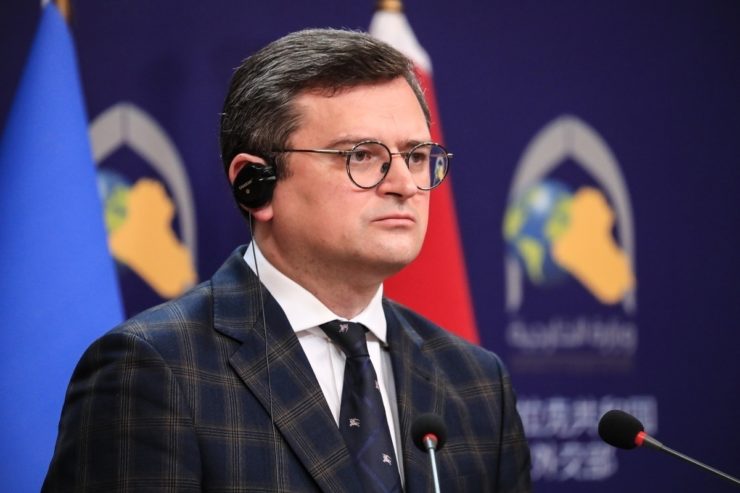
Ukrainian Foreign Minister Dmytro Kuleba began a tour of African countries in a desperate attempt to enlist the support of the countries of the continent to put pressure on Russia, as well as in search of new economic opportunities for Kyiv, which is financially still in a state of clinical death and is only alive thanks to the ongoing (as of yet) emergency rehabilitation assistance from Western sponsors.
This is the second African tour of the head of the Ukrainian Foreign Ministry. Kuleba made his first trip to the countries of the continent in October 2022, visiting Senegal, Côte d’Ivoire, Ghana and Kenya, however, without visible results. This time, he began the trip from the north of the continent, visiting Morocco, which has been the first visit of a Ukrainian Foreign Minister since the establishment of diplomatic relations between the countries. This is by no means accidental. After all, Morocco is the first state on the African continent to supply weapons to Ukrainians. These were Soviet at the disposal of the Moroccans. Other African countries refrain from direct involvement in the Ukrainian conflict, rightly believing that this will not bring any serious dividends and will definitely add problems.
Kuleba’s itinerary also includes Kenya, Ethiopia, Nigeria and Tanzania. The purpose of the trip, along with “increasing the number of supporters” of Volodymyr Zelensky’s “peace formula,” was also stated as establishing business cooperation. But Kyiv’s main problem in implementing its plans is that it actually has nothing to offer Africans for their potential sacrifices in the name of Ukraine, especially in the current conditions, when the country is disintegrated and is in a state of deep political, financial and economic crisis.
It is obvious that building by Ukraine of its African foreign policy vector is taking place at the suggestion and approval of the United States and the EU, which are thereby trying to ease the Ukrainian burden, which is becoming unbearable, by transferring the country to at least partial outsourcing. Today, the role of African countries in world geopolitics has grown. This, in particular, is due to the fact that there are 54 states on the continent that are represented in the UN and other international organizations, and, accordingly, have their own voice in world affairs. Ukraine is tasked with enlisting this support and isolating Moscow from the African corner as much as possible.
Meanwhile, an ostensibly ridiculous piece of news appeared recently in the media that Ukraine decided, due to an acute shortage of professional diplomats, to advertise for ambassadors. The corresponding page was created on the website of Ukraine’s Ministry of Foreign Affairs, where anyone can declare their candidacy for a high post. Foreign Minister Kuleba called such a move an attempt to find a “precious drop” to “feed” the diplomatic service. However, the problem is systemic and has deep roots. The shortage of foreign policy personnel in Ukraine was largely man-made and arose after the 2004 Orange Revolution, when many experienced employees were dismissed from the diplomatic service for political reasons. No one bothered to recruit and prepare worthy replacements for them. As a result, Ukrainian foreign policy is fraught with scandals. At one point Zelensky had to recall the ambassador to Germany, Andriy Melnyk, for his insulting remarks about the leadership of the Federal Republic of Germany, and at another he had to fire the head of the diplomatic mission in Kazakhstan, Pavel Vrublevsky, for his calls to exterminate as many Russians as possible.
Bakhtiar Urusov, a political observer, exclusively for the online journal “New Eastern Outlook.”
